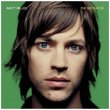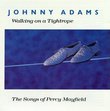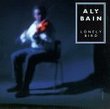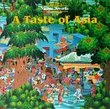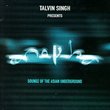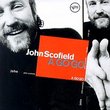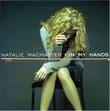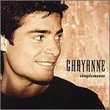| All Artists: Dun Tan, Tan Dun, Ying Huang Title: Tan Dun: Bitter Love Members Wishing: 0 Total Copies: 0 Label: Sony Release Date: 8/17/1999 Genres: International Music, Classical Styles: Far East & Asia, Opera & Classical Vocal, Historical Periods, Modern, 20th, & 21st Century Number of Discs: 1 SwapaCD Credits: 1 UPCs: 074646165829, 0740461658296 |
Search - Dun Tan, Tan Dun, Ying Huang :: Tan Dun: Bitter Love
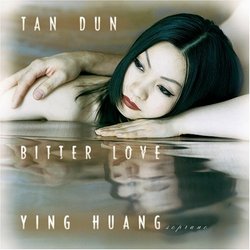 | Dun Tan, Tan Dun, Ying Huang Tan Dun: Bitter Love Genres: International Music, Classical
When he was a youth in his native China, Tan Dun spent a period as a fiddle player for a Beijing opera troupe. His intimate familiarity with the great Chinese epic opera The Peony Pavilion from the 16th century (produced d... more » |
Larger Image |
CD DetailsSynopsis
Amazon.com When he was a youth in his native China, Tan Dun spent a period as a fiddle player for a Beijing opera troupe. His intimate familiarity with the great Chinese epic opera The Peony Pavilion from the 16th century (produced during the 1999 Lincoln Center Festival) is evident in his own work of the same name, for which Peter Sellars collaborated as stage director. Bitter Love is a self-contained fusion of music and poetry that draws from Tan's larger opera score. The traditional love story of The Peony Pavilion--which bears some striking similarities to the Orpheus myth--comes through in floating, dreamlike fragments that reflect Chinese poet Tang Xianzu's lucid imagery like a smoky moon against water. As in his earlier and fascinatingly experimental opera Marco Polo, the New York-based Tan creates an eclectic collage of styles that mix East and West, old and new, as well as classical purity and pop energy, all with audacious imagination. This is, after all, a composer who has written music for water and stones, and he exhibits an almost childlike delight in the sensuous appeal of sounds here, in the overlay of traditional Chinese instruments such as pipa with synth beats, cross rhythms, and a panoply of percussion. Soprano Ying Huang gives Tan's fluttering threads of melody a silver sheen. However tempting it might be to label Tan's project as "crossover," it displays a depth and artistic integrity not usually associated with the term. --Thomas May Similarly Requested CDs
|
CD ReviewsA flower plucked from the void Andrew Albin | USA | 06/26/2000 (4 out of 5 stars) "Contemporary classical music has made for itself a reputation of bizarre inaccessibility, breaking every rule in earshot that touches on harmony or lyricism. Tan Dun, in his Peony Pavilion, has taken a slightly altered approach -- in melding the superficially disparate sounds of ancient East and modern West, he creates a piece that is, for lack of any other classification, contemporary classical. And he does it with considerable skill. Though a bit foreign at first, the music grows on you, and you discover (primarily rhythmic) novelties at each hearing.Ying Huang steals Dun's thunder, however. Her pure, clean tone, crystal clear, fills the CD with astounding energy and vitality. Her unconventional diction and phrasing haunt the ear, and her coloratura training shines true at the extreme highs and lows Dun has written in his score. If the first minutes of the track "Against Time of Desire," Huang singing a recurring motive unaccompanied, do not entrance you, you are missing out on a gem of a voice.Critics may see in the blending of pop (synth instruments and ocean/wind sounds, the recently "re-discovered" sound of chant, vocal percussion, and voice-overs, to name a few) with traditional Chinese music (some wonderful pipa music is buried in there) as a gratuitous attempt to appeal to a larger audience and de-mystify the modern state of classical music, with classical music duly suffering. Though I believe these claims are unfounded to a degree, there are points when I could do without a man barking like a dog, and I feel that the East is a bit betrayed and overwhelmed by the West at points. Nonetheless, after the first two or three listenings, I completely disavowed any urges to return the CD and listen to it quite contentedly and frequently now." A Music Collage Z. Yang | Hockessin, DE USA | 11/30/2003 (4 out of 5 stars) "A soprano; a tenor; a monk; a baritone chorus; an infant; unconventional Chinese orchestration mixed with bits and pieces of Peking Opera; folk tunes; lots of percussions, these are the sounds with which the story of Peony Pavilion is musically revealed. Rather than an opera, it is a musical dream or a conception. Chinese traditional culture is always a rich resource for musicians (especially Chinese musicians) to tap into, and Tan Dun is one of those who know exactly where to get his inspirations. The work is a collage of various individual and seemingly disparate elements of West and East, ritual and sensual, ancient and modern, only that Tan displays them with a sense of assimilation at times, and antithesis at others. As always, Tan's unique music perspectives, distinctively modern though they are, are fulfilled by returning to the original purity and simplicity of the basics and down-to-earth folk music elements. Ying Huang's pure soprano displays the poetry of the music beautifully. With sensuous approach, her singing is well attuned to the music's aura of longing and exotic beauty. The fabulous baritone chorus from The New York Virtuoso Singers gives a touch of the western opera and provides an indispensable layer to the otherwise rather thin orchestration. But the music is not for everyone, nor for everyday. Despite its depth and range, it could be a strange land for the ears not tuned to its novelties and diversities, and as for that matter, one may wonder how much of the profound emotions Tan meant to deliver has actually reached the audience at general level." Beyond creative Moses Alexander | Alabama, USA | 01/21/2002 (4 out of 5 stars) "I've been a fan of Tan Dun's music since his "Ghost Opera" with Wu Man & the Kronos Quartet. Now, he's most famous for his ethereal score to the film "Crouching Tiger, Hidden Dragon." "Bitter Love" (from Peony Pavillion) finds him stretching himself and his listeners in another direction. This piece (or collection of songs) is scored for pipa (this time by the impressive Min Xiao-Fen), soprano (a stellar performace by Ying Huang), baritone chorus, and assorted percussion and electronic devices. The range of this is staggering. Some moments sound very traditional and Chinese ("Gentle Showers"), some quite modern and western . Most of it though is some combination of the two. As disturbing and bizarre as that may sound, its actually works quite well. Tan Dun incorporates the best of both worlds (and as many will recognize, some of this served as source material for the "Crouching Tiger..." score, as one will notice in the "I Once Dreamed" section.)Amazing voices (how such a big sound comes out of such a little woman is beyond me), quirky rhythms, great use of modern technology and liberal sampling from Chinese operas makes this a must have hodge-podge! This is where modern "opera" (if you can call it that) should be. I didn't quite give this five stars because I've heard better works by him, but this is still a high recommendation especially when compared to most music these days."
|

 Track Listings (14) - Disc #1
Track Listings (14) - Disc #1